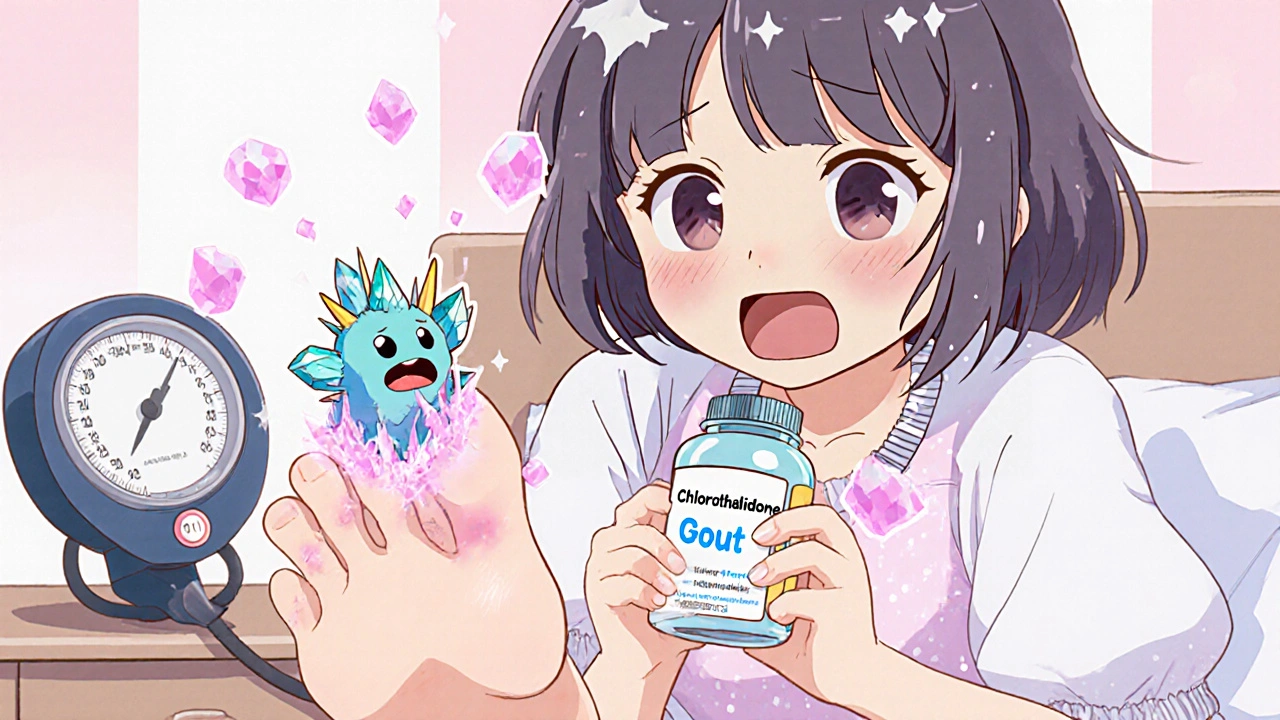Gout: Causes, Triggers, and Medications That Actually Work
When your big toe suddenly swells up, burns, and feels like it’s been hit with a hammer, you’re likely dealing with gout, a type of inflammatory arthritis caused by sharp uric acid crystals building up in the joints. Also known as podagra, it doesn’t just affect older men—it’s rising fast in younger adults due to diet, obesity, and certain medications. This isn’t just "bad luck." It’s your body’s reaction to too much uric acid, often from foods like red meat, shellfish, or alcohol—especially beer.
What makes gout tricky is how it connects to other drugs you might be taking. For example, NSAIDs, common pain relievers like ibuprofen or naproxen used to calm gout flares can be risky if you’re also on lithium for bipolar disorder. That combo can spike lithium levels by up to 60%, leading to dangerous kidney toxicity. And if you’re taking diuretics for high blood pressure, those can raise uric acid too, making flares more likely. Even some cancer drugs or transplant meds can trigger gout, often without doctors realizing the link.
Managing gout isn’t just about popping pills when it hurts. It’s about understanding what pushes your uric acid over the edge—and what to avoid. Some people think cutting out alcohol is enough, but sugar-sweetened drinks and processed foods are just as bad. Others try to skip their meds during a flare, only to end up with joint damage over time. The real goal? Keep uric acid below 6 mg/dL to stop crystals from forming. That often means daily meds like allopurinol or febuxostat, not just emergency pain relief.
And here’s the thing: gout doesn’t happen in a vacuum. It’s tied to heart disease, kidney problems, and metabolic syndrome. If you’ve had one flare, you’re likely to have more. The good news? Most people can control it with the right combo of diet, hydration, and consistent treatment. You don’t need to give up everything—but you do need to know which foods, drugs, and habits are working against you.
Below, you’ll find real-world guides on how to handle gout flares safely, what medications to watch out for, how to talk to your doctor about long-term control, and why switching generic drugs can sometimes make things worse. No fluff. Just what works—and what to avoid.

 Nov, 18 2025
Nov, 18 2025